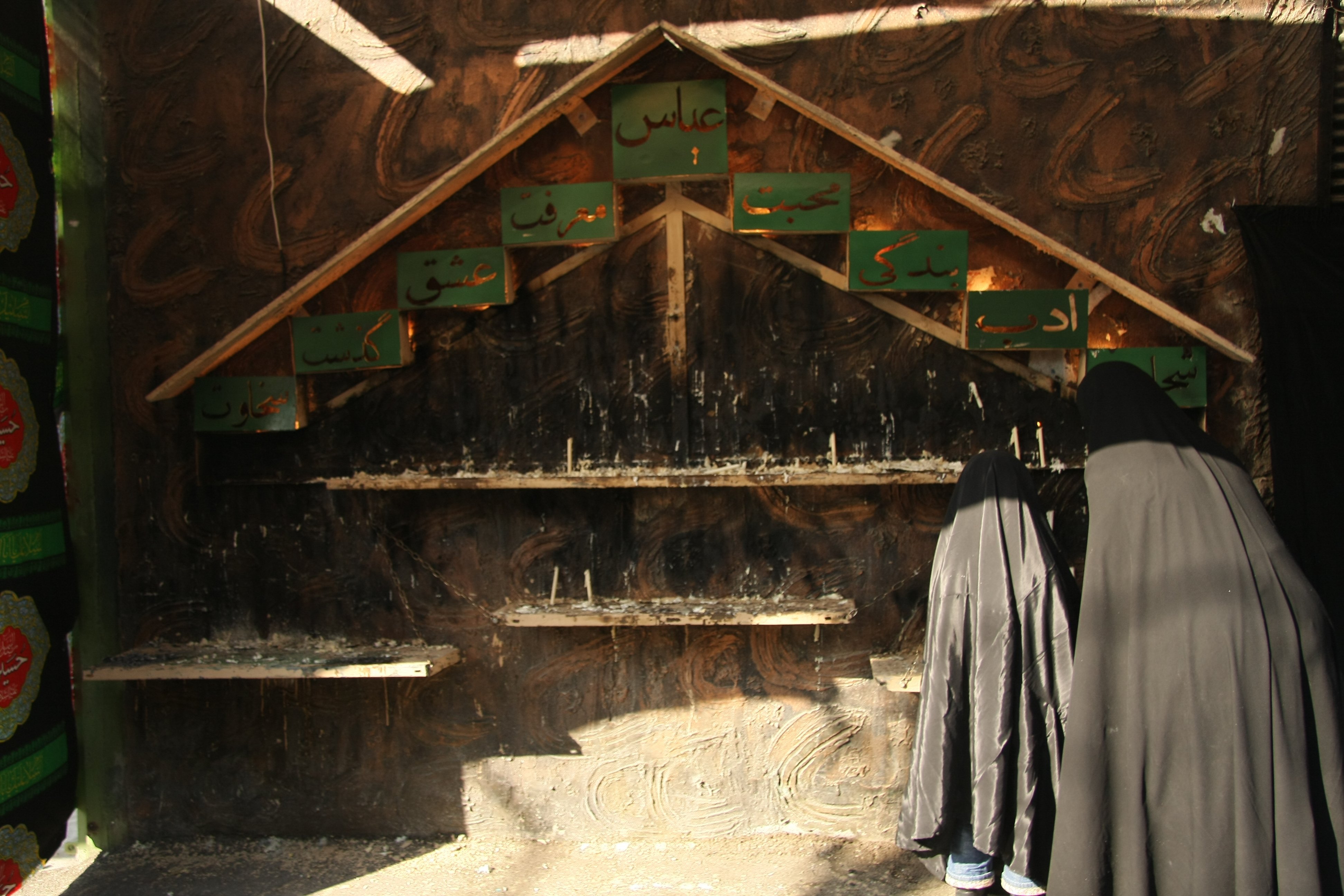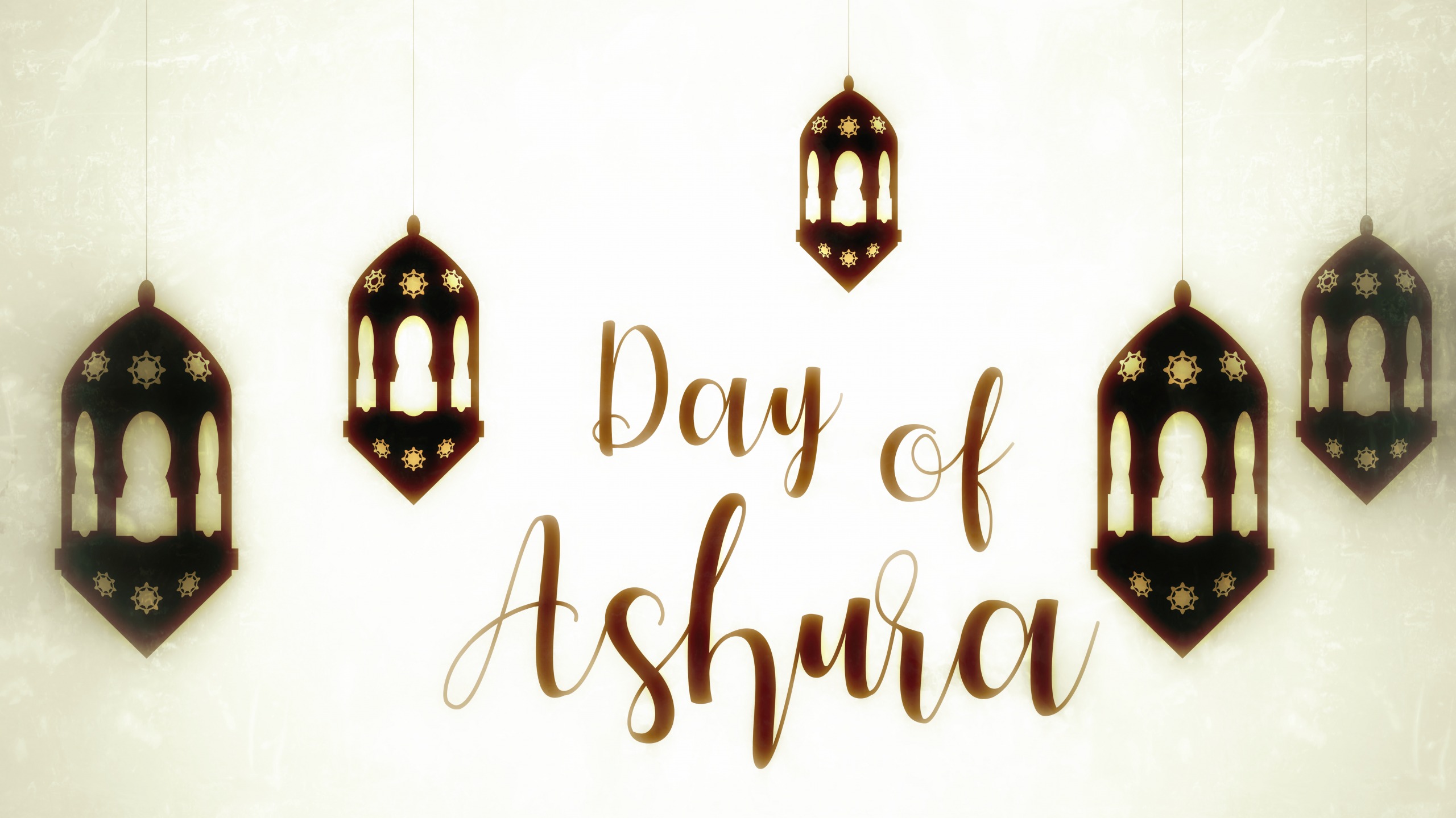Achoura 2024: The Day Of Remembrance And Celebration
So here we are, diving headfirst into one of the most significant days in Islamic culture—Achoura 2024. This isn't just another day on the calendar; it's a moment steeped in history, spirituality, and unity. Achoura is celebrated by Muslims around the globe, but let's break it down for those who might not fully grasp its importance. Achoura 2024 is all about commemorating key events in religious history, and it's a time when communities come together to reflect, honor, and celebrate.
Now, you might be wondering why Achoura is such a big deal. Well, buckle up because this day isn’t just about fasting or prayer. It’s about remembering the sacrifices of Prophet Moses and the deliverance of the Israelites from Pharaoh, along with the martyrdom of Imam Hussain at Karbala. These events are deeply woven into the fabric of Islamic tradition, and Achoura 2024 will bring them to the forefront again. It's not just a religious observance—it's a cultural phenomenon.
And hey, if you're curious about how people observe Achoura in different parts of the world or how you can participate, stick around. We’re about to take you on a journey that’ll leave you with a deeper understanding of this sacred day. Let’s get into the nitty-gritty of what makes Achoura 2024 so special and why it matters to millions of people worldwide.
- Lexi Marvel Nude A Candid Look At The Misleading Headline And Its Implications
- Discover The Hidden Gem La Villa De Littleangel
Table of Contents:
- The History Behind Achoura
- The Significance of Achoura in Islam
- How Achoura Is Celebrated Around the World
- Spiritual Practices During Achoura
- Traditional Foods and Drinks for Achoura
- Rituals and Traditions Observed During Achoura
- Frequently Asked Questions About Achoura
- Preparing for Achoura 2024
- Reflections and Lessons from Achoura
- Conclusion: Embracing the Spirit of Achoura
The History Behind Achoura
Let’s rewind the clock and dive into the rich tapestry of history that surrounds Achoura. The word "Achoura" literally means "tenth" in Arabic, referring to the tenth day of Muharram in the Islamic lunar calendar. This day holds immense significance for Muslims, particularly Shia Muslims, as it marks the martyrdom of Imam Hussain ibn Ali, the grandson of Prophet Muhammad, in the Battle of Karbala. But wait, there’s more to the story.
For Sunni Muslims, Achoura is also tied to the Exodus narrative, where Prophet Moses led the Israelites out of Egypt and crossed the Red Sea, escaping the tyranny of Pharaoh. It’s believed that Prophet Muhammad encouraged fasting on this day to honor the miracle. So, whether you're Sunni or Shia, Achoura carries a universal message of resilience, faith, and sacrifice.
- Spidey Must Resist Temptation Comics Shehulks Magnetic Pull
- Unveiling The Secrets Of Miel Nue A Sweet Journey Into Pure Bliss
Historical Context of the Battle of Karbala
Fasten your seatbelts, because the Battle of Karbala is one of the most heart-wrenching yet inspiring stories in Islamic history. In 680 AD, Imam Hussain stood up against the oppressive regime of the Umayyad Caliph Yazid I. Despite being vastly outnumbered, Imam Hussain and his small band of followers chose to fight for justice and principles. Tragically, they were all martyred, but their sacrifice continues to inspire millions today.
What makes this story even more poignant is the betrayal and suffering faced by Imam Hussain and his family. It’s a tale of courage in the face of overwhelming odds, and it resonates deeply with people of all faiths and backgrounds. Achoura 2024 will be a time to reflect on these events and honor the legacy of Imam Hussain.
The Significance of Achoura in Islam
Achoura isn’t just a historical event—it’s a deeply spiritual and symbolic day for Muslims. For Shia Muslims, it’s a day of mourning and remembrance, while for Sunnis, it’s a day of gratitude and fasting. The significance of Achoura lies in its ability to unite people through shared values of justice, compassion, and faith.
Why Do Muslims Fast on Achoura?
Fasting on Achoura has been a long-standing tradition among Sunni Muslims. It’s believed that Prophet Muhammad encouraged Muslims to fast on this day as a way of thanking Allah for the deliverance of Moses and the Israelites. In fact, some traditions suggest that fasting on Achoura can expiate sins from the previous year. Talk about a spiritual reset button!
For Shia Muslims, fasting is less common, as the day is associated with mourning rather than celebration. Instead, they focus on acts of charity, reflection, and commemorative rituals to honor the sacrifices of Imam Hussain.
How Achoura Is Celebrated Around the World
Achoura celebrations vary widely depending on cultural and regional practices. While some communities observe it with solemn rituals, others turn it into a vibrant celebration. Let’s take a global tour and see how different parts of the world mark this special day.
Celebrations in Iran and Iraq
In countries like Iran and Iraq, Achoura is a deeply emotional experience. People participate in processions, where they march through the streets chanting and beating their chests in mourning. It’s a powerful display of unity and devotion, often accompanied by theatrical reenactments of the Battle of Karbala. These events are both heart-wrenching and awe-inspiring, drawing crowds from all over the world.
Celebrations in India and Pakistan
India and Pakistan also have rich traditions surrounding Achoura. In these regions, people organize majalis (gatherings) to recite poetry and narrate the story of Imam Hussain. Some communities even create elaborate floats and decorations to honor the martyrs of Karbala. It’s a beautiful blend of spirituality and creativity that brings people together.
Spiritual Practices During Achoura
While the external celebrations are fascinating, the real heart of Achoura lies in its spiritual practices. This is a time for Muslims to deepen their connection with Allah and reflect on the values of justice, sacrifice, and compassion. Whether you’re fasting, praying, or engaging in acts of charity, Achoura offers countless opportunities for spiritual growth.
Prayers and Supplications
Many Muslims spend the day in prayer, reciting special supplications known as "Ziyarat Ashura." These prayers are believed to bring blessings and forgiveness. They serve as a reminder of the enduring legacy of Imam Hussain and the importance of standing up for what’s right, even in the face of adversity.
Traditional Foods and Drinks for Achoura
No celebration is complete without food, and Achoura is no exception. Different cultures have their own unique dishes and drinks that are prepared and shared during this time. Let’s take a look at some of the most popular Achoura delicacies.
Ash-e Reshteh
In Iran, Ash-e Reshteh is a hearty noodle soup that’s often served during Achoura. It’s made with beans, noodles, and herbs, and it’s a symbol of prosperity and good fortune. Sharing this dish with family and friends is a way of spreading joy and unity.
Halim
Halim, a slow-cooked porridge made with wheat, barley, and meat, is another popular dish during Achoura. It’s especially common in South Asia, where it’s distributed freely to the poor as an act of charity. Halim is more than just food—it’s a gesture of kindness and compassion.
Rituals and Traditions Observed During Achoura
Achoura is steeped in rituals and traditions that have been passed down through generations. These practices vary from community to community, but they all share a common thread of devotion and remembrance. Let’s explore some of the most notable rituals observed during this day.
Matam
Matam is a ritualistic form of self-flagellation practiced by some Shia Muslims during Achoura. Participants beat their chests or use chains to express their grief over the martyrdom of Imam Hussain. While this practice might seem intense, it’s a deeply personal and spiritual act for those who participate.
Charity and Community Service
Charity is a cornerstone of Achoura celebrations. Many Muslims take this opportunity to give back to their communities by distributing food, clothing, and other essentials to the less fortunate. It’s a way of embodying the values of compassion and generosity that Imam Hussain exemplified.
Frequently Asked Questions About Achoura
Got questions? We’ve got answers. Here are some of the most common queries about Achoura and its significance.
- What is Achoura? Achoura is the tenth day of Muharram in the Islamic calendar and is observed by Muslims worldwide as a day of remembrance and reflection.
- Why is Achoura important? It commemorates the martyrdom of Imam Hussain and the deliverance of Prophet Moses from Pharaoh, making it a day of both mourning and gratitude.
- Do all Muslims celebrate Achoura the same way? No, practices vary between Sunni and Shia Muslims, with Sunnis focusing on fasting and Shias on mourning rituals.
Preparing for Achoura 2024
With Achoura 2024 just around the corner, it’s time to start preparing. Whether you’re planning to fast, attend a majlis, or engage in acts of charity, there’s plenty you can do to make this day meaningful. Here are a few tips to help you get ready:
- Reflect on the values of justice and sacrifice that Achoura represents.
- Plan your spiritual practices, such as fasting or prayer, in advance.
- Reach out to your community to organize charity events or food distributions.
Reflections and Lessons from Achoura
Achoura is more than just a historical event or a religious observance—it’s a call to action. It reminds us of the importance of standing up for what’s right, even when it’s difficult. The sacrifices of Imam Hussain and the deliverance of Prophet Moses teach us that faith, courage, and compassion can overcome even the toughest challenges.
How Can We Apply These Lessons in Our Daily Lives?
Whether you’re facing personal struggles or working to make the world a better place, the lessons of Achoura can guide you. Embrace the values of justice, kindness, and resilience, and let them inspire your actions every day. Achoura isn’t just a one-day event—it’s a lifelong commitment to making a difference.
Conclusion: Embracing the Spirit of Achoura
As we wrap up our journey through the world of Achoura 2024, it’s clear that this day is more than just a date on the calendar. It’s a time to reflect, remember, and renew our commitment to the values that matter most. Whether you’re fasting, praying, or giving back to your community, Achoura offers countless opportunities for growth and connection.
We encourage you to take a moment to think about how you can make Achoura meaningful in your own life. Share this article with your friends and family, leave a comment below, or explore more of our content to deepen your understanding of this sacred day. Together, let’s honor the legacy of Achoura and the lessons it teaches us.



Detail Author:
- Name : Kailey Zieme
- Username : rutherford.lonie
- Email : jstrosin@leffler.com
- Birthdate : 1984-04-15
- Address : 279 Kovacek Port Trantowland, KY 64085-9429
- Phone : 218-718-5060
- Company : Bergnaum, O'Kon and Bergstrom
- Job : Construction
- Bio : Voluptatibus et in aut ut. Molestiae quia et eligendi cupiditate deserunt ullam culpa. Magnam incidunt sunt et molestias.
Socials
tiktok:
- url : https://tiktok.com/@wolffc
- username : wolffc
- bio : Laborum cupiditate laudantium ea optio non.
- followers : 3079
- following : 2098
facebook:
- url : https://facebook.com/wolffc
- username : wolffc
- bio : Officia tempora error rerum eum. Nulla ea cumque dolor.
- followers : 3495
- following : 1593